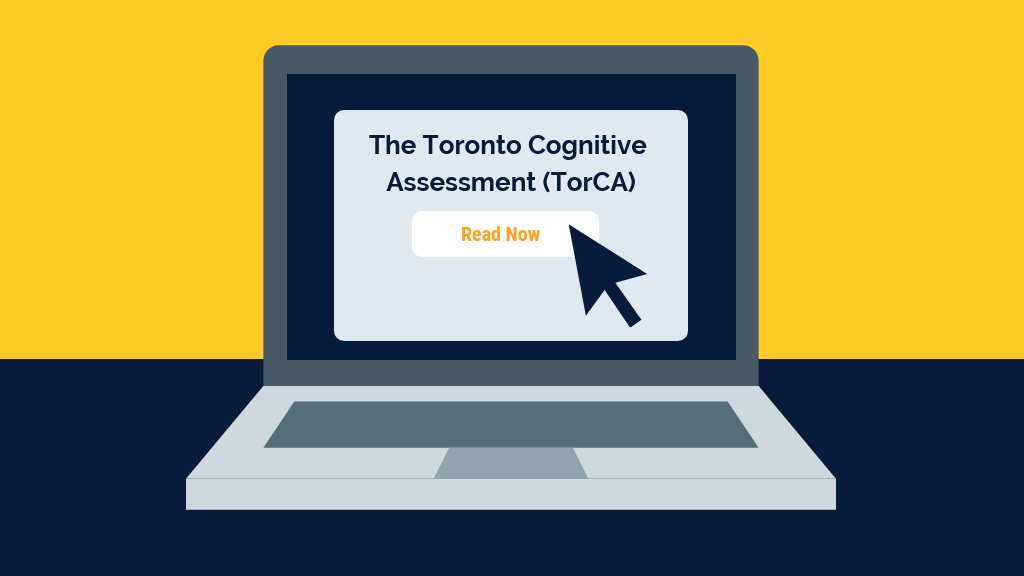Support TDRA
News
Alzheimer's-affected brains are riddled with so-called amyloid plaques: protein aggregates consisting mainly of amyloid-beta. However, this amyloid-beta is a fragment produced from a precursor pr [...]
 Researchers have uncovered part of the explanation for why poor sleep is linked to Alzheimer's disease. They found that older people who have less slow-wave sleep -- the deep sleep you need to co
[...]
Researchers have uncovered part of the explanation for why poor sleep is linked to Alzheimer's disease. They found that older people who have less slow-wave sleep -- the deep sleep you need to co
[...]
Researchers report that the fungus Candida albicans can cross the blood-brain barrier and trigger an inflammatory response that results in the formation of granuloma-type structures and temporary mild [...]
 Alzheimer's disease is caused by aggregates of amyloid-beta peptides. This aggregation is accelerated at a cell membrane surface. The research group at ExCELLS revealed the reason of this phenome
[...]
Alzheimer's disease is caused by aggregates of amyloid-beta peptides. This aggregation is accelerated at a cell membrane surface. The research group at ExCELLS revealed the reason of this phenome
[...]
Incorporating genetic diversity into a mouse model of Alzheimer's disease resulted in greater overlap with the genetic, molecular and clinical features of this pervasive human disease, according [...]
Psychological aspects, such as optimism, self-esteem, loneliness and depression were closely linked to ability to optimize quality of life and wellbeing in both people with dementia and carers. Experi [...]
 An ultrasensitive test has been developed that detects a corrupted protein associated with Alzheimer's disease and chronic traumatic encephalopathy (CTE), a condition found in athletes, military
[...]
An ultrasensitive test has been developed that detects a corrupted protein associated with Alzheimer's disease and chronic traumatic encephalopathy (CTE), a condition found in athletes, military
[...]
Researchers have discovered new changes occurring in the human brain in the early stages of Alzheimer's disease. The researchers used a multiomic approach to determine RNA, protein, and phosphory [...]
A study sheds new light on how the hallmarks of Alzheimer's disease -- amyloid-beta plaques and neurofibrillary tangles containing the protein tau -- produce their damaging effects in the brain. [...]
Researchers found that excitatory neurons -- those that are more likely to trigger an action (as opposed to inhibitory neurons, which are less likely to prompt neural activity) -- are more vulnerable [...]
Researchers have succeeded in neutralizing what they believe is a primary factor in late-onset Alzheimer's disease, opening the door to development of a drug that could be administered before age [...]
New research shows that in older people living in the community, type 2 diabetes is associated with a decline in verbal memory and fluency over five years. [...]
Scientists have identified three biomarkers for detecting mild cognitive impairment and Alzheimer's disease in saliva samples. The research has promising results for application in a clinical set [...]
 Scientists who recently identified the molecular start of Alzheimer's disease have used that finding to determine that it should be possible to forecast which type of dementia will develop over t
[...]
Scientists who recently identified the molecular start of Alzheimer's disease have used that finding to determine that it should be possible to forecast which type of dementia will develop over t
[...]
Use of two episodic memory tests help in predicting brain atrophy and Alzheimer's disease, as indicated by a study. Researchers suggest that comprehensive use of memory tests could improve the di [...]
 Researchers have identified in live human brains new radioactive 'tracer' molecules that bind to and 'light up' tau tangles, a protein associated with a number of neurodegenerative
[...]
Researchers have identified in live human brains new radioactive 'tracer' molecules that bind to and 'light up' tau tangles, a protein associated with a number of neurodegenerative
[...]
A scientific strategy that explores therapeutic targets based on the biology of aging is gaining ground as an effective approach to prevent and treat Alzheimer's disease. [...]
Researchers from the University of Waterloo found that even if people weren't good at it, drawing, as a method to help retain new information, was better than re-writing notes, visualization exer [...]
A research team has identified genetic processes involved in the neurodegeneration that occurs in dementia -- an important step on the path toward developing therapies that could slow or halt the cour [...]
Researchers report that 27 percent of people 65 and older own one or more firearms, and 37 percent live in a home with a firearm present. One study of patients with dementia or related mental health i [...]
Scientists have identified gene recombination in neurons that produces thousands of new gene variants within Alzheimer's disease brains. The study reveals for the first time how the Alzheimer [...]
To turn back the clock on Alzheimer's disease, many researchers are seeking ways to effectively diagnose the neurodegenerative disorder earlier. One potential way to do this is by tracking a pers [...]
Doctors may one day be able to gauge a patient's risk of dementia with an MRI scan, according to a new study. Using a new technique for analyzing MRI data, researchers were able to predict who wo [...]
 Artificial intelligence (AI) technology improves the ability of brain imaging to predict Alzheimer's disease, according to a new study.
[...]
Artificial intelligence (AI) technology improves the ability of brain imaging to predict Alzheimer's disease, according to a new study.
[...]
A new study suggests drinking coffee may protect you against developing both Alzheimer's and Parkinson's disease. [...]
A research team decided to explore whether exercise could reduce the risk of falling among community-dwelling people with Alzheimer's Disease who also had neuropsychiatric symptoms. [...]
Forgetfulness and age-related memory lapses are a common complaint among older adults, but what is still not understood is what causes these changes. Recent research brings us a step closer to uncover [...]
 Herpes is the dreaded 'gift that keeps on giving'. But could it also be taking our memories? Decades of research show a striking correlation between Alzheimer's disease risk and infecti
[...]
Herpes is the dreaded 'gift that keeps on giving'. But could it also be taking our memories? Decades of research show a striking correlation between Alzheimer's disease risk and infecti
[...]
Pre-eclampsia is associated with an increased risk of later dementia, particularly vascular dementia, caused by reduced blood supply to the brain due to diseased blood vessels, finds a large study. [...]
Stiffness of the aorta -- more so than blood pressure or subclinical brain disease -- is a key risk factor for dementia. Since aortic stiffness can be reduced by medication and healthy lifestyle chang [...]
Only a small proportion of cases of dementia are thought to be inherited -- the cause of the vast majority is unknown. Now a team of scientists believe they may have found an explanation: spontaneous [...]
New research has revealed a role for splicing proteins in the pathology of Alzheimer's disease. Increased phosphorylation of the SRRM2 protein, seen in AD mouse models and human patients, was fou [...]
A 2016 study showed that exposure to urban pollution involving magnetite particles played a role in the development of Alzheimer's disease. It began from the hypothesis that magnetite particles w [...]
People with a particular kind of irregular heartbeat called atrial fibrillation may experience a faster decline in thinking and memory skills and have a greater risk of dementia than those without atr [...]
In preparation for more tools that detect and measure the biology associated with Alzheimer's and other dementias earlier and with more accuracy, experts have published appropriate use criteria ( [...]
A team of scientists has successfully trained a new artificial intelligence (AI) algorithm to make accurate predictions regarding cognitive decline leading to Alzheimer's disease. [...]
A new study has shown that by combining imaging and neuropsychological testing, one can more accurately assess the cognitive status of individuals. [...]
 Long-term exposure to periodontal disease bacteria causes inflammation and degeneration of brain neurons in mice that is similar to the effects of Alzheimer's disease in humans. Periodontal disea
[...]
Long-term exposure to periodontal disease bacteria causes inflammation and degeneration of brain neurons in mice that is similar to the effects of Alzheimer's disease in humans. Periodontal disea
[...]
The first large US study of cognition in older breast cancer patients found that within the first two years after diagnosis and treatment, most women do not experience cancer-related cognitive problem [...]
Up to half of people with Alzheimer's disease (AD) use a psychotropic drug, and one in five uses two or more psychotropics concomitantly, according to a new study. [...]
 A newly identified mechanism explaining the possible cause for Alzheimer's and traumatic brain injury may have also led to the discovery of an effective treatment.
[...]
A newly identified mechanism explaining the possible cause for Alzheimer's and traumatic brain injury may have also led to the discovery of an effective treatment.
[...]
New research reveals that a novel drug reverses memory deficits and stops Alzheimer disease pathology (AD) in an animal model. Importantly, this drug has already proven to be non-toxic for humans in a [...]
For individuals carrying a genetic mutation that causes Alzheimer's disease, engaging in at least 2.5 hours of physical activity per week may have beneficial effects on markers of Alzheimer' [...]
Experts are examining the link between impaired vision, hearing, and cognition. [...]
Leaks in the blood-brain barrier can provide early detection for Alzheimer's and diseases. [...]
Nilvadipine shows no benefit for the treatment of Alzheimer's disease in mild and moderate stages of the disease, but further studies targeting the early phase of the disease may be warranted. [...]
Researchers learn more about the relationship between sexual behavior, function, and cognition (people's ability to think and make decisions). [...]
A vicious feedback loop underlying brain degeneration in Alzheimer's disease may explain why so many drug trials have failed, according to researchers. Their study also identifies a clinically ap [...]
 Zombie cells are the ones that can't die but are equally unable to perform the functions of a normal cell. These zombie, or senescent, cells are implicated in a number of age-related diseases. Re
[...]
Zombie cells are the ones that can't die but are equally unable to perform the functions of a normal cell. These zombie, or senescent, cells are implicated in a number of age-related diseases. Re
[...]
 A new brain imaging method can show the spread of specific tau protein depositions, which are unique to cases with Alzheimer's.
[...]
A new brain imaging method can show the spread of specific tau protein depositions, which are unique to cases with Alzheimer's.
[...]











 Email:
Email:
 Telephone:
416-480-6103
Telephone:
416-480-6103
 Mailing Address:
Mailing Address:
